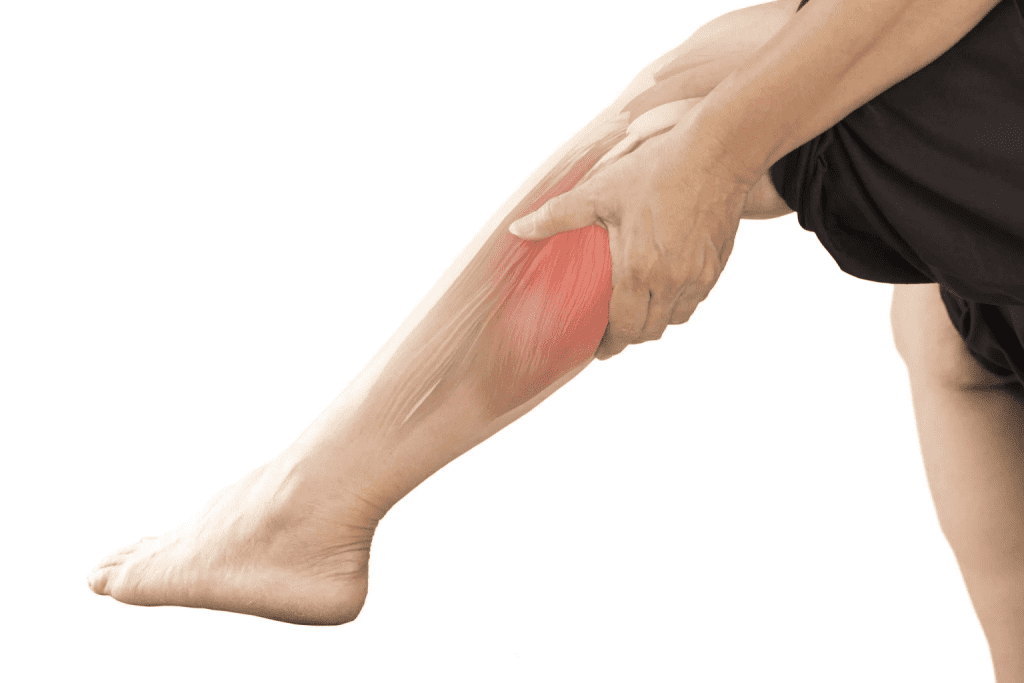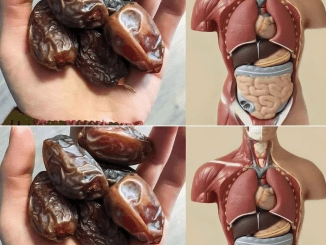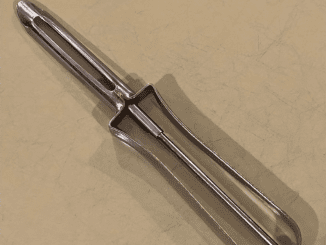If you’ve ever dealt with brittle nails or been jolted awake by a painful leg cramp, you know just how frustrating these issues can be. While they may seem unrelated, weak nails and frequent leg cramps often signal underlying health issues, particularly nutritional deficiencies. In this article, we’ll dive into the causes, symptoms, and solutions for both, giving you the tools to improve your nail health and keep muscle cramps at bay.

Understanding Weak Nails and Their Causes
Weak nails can appear thin, brittle, or prone to breaking. You may also notice that they grow slowly, peel easily, or develop ridges and discoloration. Understanding the root cause of these symptoms is the first step to restoring nail strength.
1. Nutritional Deficiencies
- Biotin: This B-vitamin is crucial for nail health, and a deficiency can lead to brittle nails. Foods rich in biotin, such as eggs, nuts, and seeds, can support stronger nails.
- Iron: Low iron levels contribute to weak, brittle nails and are often associated with anemia. Boost your iron intake with spinach, lentils, and lean meats.
- Zinc: Zinc is essential for nail growth and strength. It’s found in foods like oysters, pumpkin seeds, and red meat.
- Vitamins A, C, and E: These vitamins help with collagen production, which supports nail strength. Incorporate carrots, bell peppers, and almonds into your diet to boost your intake.
2. Exposure to Harsh Chemicals
- Frequent exposure to nail polish removers, cleaning products, or harsh soaps can strip your nails of their natural oils, making them more susceptible to breaking. Try to limit the use of these products and consider wearing gloves when cleaning.
3. Excessive Moisture
- While it may seem counterintuitive, prolonged exposure to water—such as frequent hand washing or dishwashing—can weaken nails, leading to breakage and peeling.
4. Underlying Medical Conditions
- Conditions such as hypothyroidism, psoriasis, and even some forms of anemia can cause nail brittleness. If you’re dealing with persistent nail issues, consider speaking to a healthcare provider to rule out any underlying conditions.
Symptoms of Weak Nails
Weak nails may present with several noticeable symptoms, including:
- Brittleness and splitting
- Peeling or slow growth
- Discoloration or ridging
- Pain or misshapen appearance
If you notice any of these symptoms, your nails may need extra care and attention. Making simple lifestyle adjustments and incorporating the right nutrients can go a long way in improving nail health.
Understanding Frequent Leg Cramps
Leg cramps are sudden, involuntary muscle contractions that can cause intense pain, typically in the calf, thigh, or foot. They can last anywhere from a few seconds to several minutes and may be accompanied by muscle tightness or soreness afterward.

1. Common Causes of Leg Cramps
- Dehydration: Lack of adequate water intake can lead to electrolyte imbalances, making muscles more prone to cramping.
- Electrolyte Imbalances: Low levels of potassium, calcium, or magnesium are common culprits behind muscle cramps. Ensuring a balanced intake of these nutrients is essential for proper muscle function.
- Poor Circulation: Reduced blood flow can restrict oxygen to the muscles, leading to cramping, especially during or after physical activity.
- Overexertion: Straining muscles, whether through exercise or prolonged standing, can lead to fatigue and cramping.
2. Medical Conditions and Medications
- Conditions such as diabetes, peripheral artery disease, and nerve compression issues can cause frequent leg cramps. Additionally, some medications, such as diuretics or statins, can increase your risk.
Symptoms of Frequent Leg Cramps
The hallmark of leg cramps is a sudden, sharp pain that may feel like your muscle is “locking up.” It can last for several minutes, and in severe cases, muscle tenderness may linger for hours afterward. If you experience cramps frequently, it may be time to investigate the cause and consider lifestyle adjustments.
How to Address Nutritional Deficiencies

If you suspect nutritional deficiencies are contributing to your weak nails or leg cramps, the first step is to evaluate your diet. Blood tests can confirm deficiencies, and a healthcare provider or nutritionist can help you develop a plan to address them.
1. Boosting Nutrients for Nail Health
- Biotin: Biotin supplements can help strengthen nails if you’re not getting enough through diet. Foods rich in biotin include eggs, almonds, and sweet potatoes.
- Iron and Zinc: These minerals are vital for nail and overall health. Red meat, seafood, and leafy greens are good sources.
- Vitamins A, C, and E: Eating a variety of fruits and vegetables will help ensure you get these vitamins. Consider adding bell peppers, oranges, and spinach to your meals.
2. Supplements for Muscle Health
- Magnesium: Known for its muscle-relaxing properties, magnesium can help reduce cramping. Foods rich in magnesium include spinach, nuts, and bananas.
- Potassium: Bananas, avocados, and potatoes are excellent sources of potassium, which helps prevent cramps.
- Calcium: Calcium-rich foods, like dairy products and leafy greens, are important for muscle function.
The Importance of Hydration

Staying well-hydrated is essential for both nail and muscle health. Water helps maintain proper electrolyte balance, supporting healthy muscle function and cellular repair. Aim for at least eight glasses of water a day, and increase your intake if you’re physically active or in a hot environment.
Exercise and Stretching for Stronger Muscles
Regular physical activity and stretching are excellent ways to prevent leg cramps. Focus on exercises that improve circulation and flexibility, such as walking, yoga, or Pilates. Remember to warm up before exercise and cool down afterward to avoid muscle strain.
Simple Stretching Routine
- Calf Stretch: Stand facing a wall, place your hands on it, and step one foot back, keeping it straight. Hold the stretch for 20-30 seconds and switch sides.
- Hamstring Stretch: Sit on the floor with one leg extended and the other bent. Reach toward your toes, feeling a stretch in the back of your thigh. Hold for 20-30 seconds, then switch sides.

Conclusion
Weak nails and frequent leg cramps may seem like minor issues, but they can indicate nutritional deficiencies or other underlying health conditions. By focusing on a balanced diet rich in essential nutrients, staying hydrated, and incorporating regular exercise, you can improve both your nail strength and muscle health. Listen to your body and don’t hesitate to seek medical advice if symptoms persist. By making a few simple lifestyle changes, you can enjoy stronger nails and fewer cramps, enhancing your overall well-being.


